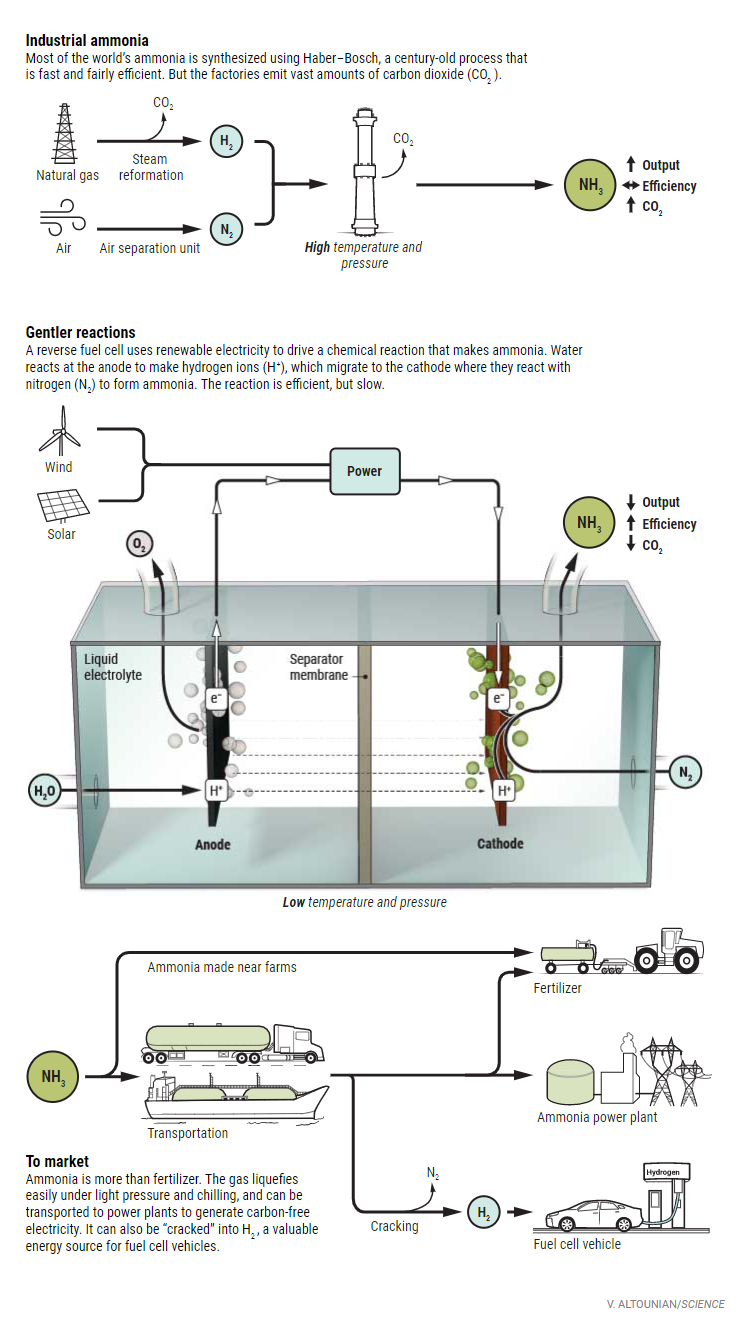I suspect to most of us Ammonia is something that just stinks that people sometimes clean with. Yet if you've cleaned you also likely have heard the dangers of if that should mix with something like bleach. You would quickly find yourself burning from the acid anywhere the Chlorine Gas that was produced made contact with moisture on your skin, lungs, eyes, etc. and was converted to Hydrochloric Acid. That doesn't sound particularly pleasant.
It is also used in fertilizer and we've likely all encountered references to Ammonium Nitrate in reference to bombings such as the Oklahoma City Bombing. That might have passingly given us the picture that something to do with Ammonia might be quite explosive.
You may have read science fiction novels, or played games where a planet supposedly had an Ammonia atmosphere.
If you are like me that is possibly as far as your knowledge ever went down the Ammonia rabbit hole.
The fact that Ammonia can easily be transported as a liquid and yet it can be turned into a rather explosive fuel is important. It is actually can produce more energy per density than hydrogen while being quite a bit easier to transport and use.
So why haven't we used it for that?
Until now we have been using the Haber-Bosch process to produce Ammonia. This is a very energy intensive process. It uses a lot of fossil fuels and produces a lot of pollution.
Back in July of 2018 Douglas MacFarlane a Chemist from the Monash University in Australia began talking about a process to make Ammonia from the Sun, Air, and Water. The idea that this could be accomplished without fossil fuels had extreme potential. Ammonia is easily stored in several forms. It has a higher energy density than Hydrogen. It is non-polluting. It can easily be broken back into it's component parts. If you could manufacture it using solar, wind, or other such sources you could use it as a long term and portable form of storage for that energy.
That has grand implications.

IMAGE: from the linked Douglas MacFarlane article from 2018 above
This topic seems to be mostly flying under the radar. It likely could change the future rather substantially.
I found another article from June, 2020 about people planning for an Ammonia based economy.
In this Douglas MacFarlane is referenced as indicating that by 2050 that Ammonia could replace fossil fuels in almost any application. I can think of quite a few places it wouldn't. Material products that require fossil fuels as part of their chemistry. Things like plastics, and other non-energy related uses. Though without a doubt most of fossil fuel usage is for energy and it seems likely that Ammonia could replace all such uses.
I found this interesting and promising. While it isn't breaking news it is something I am only just hearing about myself. I wanted to share it in case some of you also hadn't been aware of the progress being made in this area.
It's good to see this article. I've been (and still am) waiting patiently for this company (https://www.nh3fuel.com/index.php) to IPO. I also think that adding Ammonia as part of a diversified energy economy is the way to go.
I would like to see that happen as well.
Don't forget the boomie part.
Or the asphixiating part.
or the corrosive part.
Other than as an intermediat between 'alternative energy' (think battery) and the grid, I don't really see any need for it.
Other than that it's good to go.
Hey. Good to see you around my friend. I thought about you the other day.
All of your points are good ones. Also consider if someone were to add some bleach to the tank for vehicles using this...
Chlorine Gas anyone.
EDIT: As to the boomie part I did mention Oklahoma City Bombing. Though I didn't put any emphasis on it. It is indeed quite explosive. More so than hydrogen even.
An upside... even if they don't convert everything. If they can scale up the new tech to replace the method we've been using up to this point then we could use the fossil fuels freed up in other endeavors. It'd also eliminate some pollution. Though in case you have forgotten I myself don't consider CO2 pollution. Some other byproducts of industries I consider pollutant.